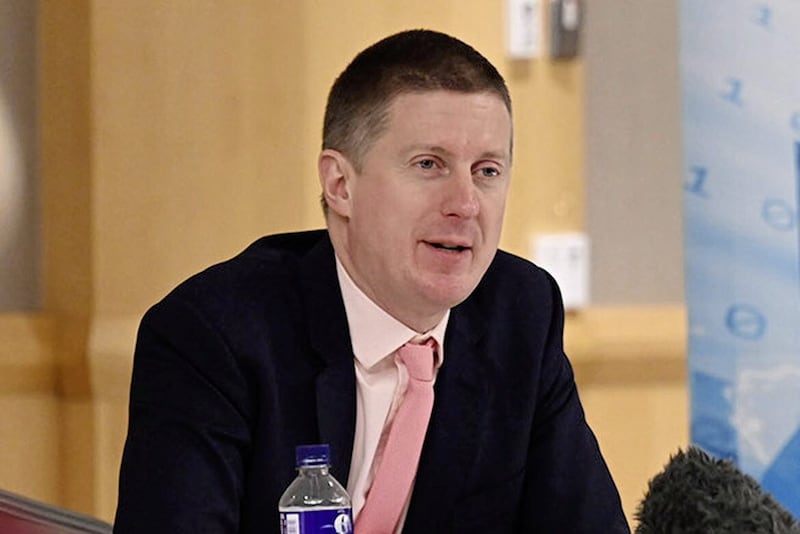A looming financial ‘cliff edge’ will be eased with the introduction of water charges and increased domestic rates averaging an extra £800 for every household in the north, an independent financial watchdog has said.
This could raise more than £600 million a year, allowing the devolved government to go some way to plug the budget shortfall expected in two years, according to the Northern Ireland Fiscal Council.
Members of the council, including the chair Sir Robert Chote, on Wednesday will deliver their analysis of the 2024/25 budget to the Assembly Finance Committee.
They will warn the north’s finances are heading towards a ‘cliff edge’ in 2026/27 after “stabilisation funding” of £520m in each of the next two years ends. The council said pay will “swallow” up most of that money.

The shortfall will happen a year earlier if the devolved government is forced to pay back a debt of £559m to the UK Treasury. A plan to “deliver sustainable public finances and services” must be published before the end of September 2024 and implemented by May next year for the debt to be written off.
In its report on the budget, the fiscal council warned of the “funding ‘cliff edge’ in 2026-27….that the Executive will likely find it difficult to navigate without further support even if it takes decisive action on revenue raising, finding savings and reforming public services”.
One of the ways to “ameliorate” the impact of the budget shortfall would be to introduce “explicit domestic water charges allied to an increase in the regional rate”.
Introducing a charge, estimated by the fiscal watchdog at approximately £800 per household, would bring the north into line with the average level of water charges and council tax in England. It could raise £615 million, based on 768,900 households.
“This would be sufficient to increase total Executive spending by around 4 per cent in 2024-25 but no doubt at the cost of significant political controversy.” the council said in its report.
Infrastructure Minister John O’Dowd has ruled out introducing water charges, in place in England, Scotland and Wales.

Under the deal that helped restore the Executive, £520 million for each of the next two years was provided to stabilise public services.
“This can be used for any purpose the Executive determines, although in practice it will be swallowed up by pay,” the council said. The deal also included £584m to meet the cost of back dated pay awards for 2023/24.
The council suggested “public sector pay restraint, however unpopular and difficult, would improve the manageability of the NI public finance”. The Department of Finance has said departments must plan for 3% pay growth and to find that money from their new budget allocations.
This means all departments start the fiscal year facing “an in-built wage-cost pressure” and warns “this might require further headcount reductions in some departments or could result in further strike action”,” the council said.
Another ‘red flag’ raised by the council is “the lack of buy-in” from the Health Minister Robin Swann. Mr Swann was the only minister who refused to vote for the budget after asking for an extra £1.2bn but receiving £459m.

“One concern is that the experience of the last two years may have diminished the political stigma of over-spending against budget, especially if you know that you are not going to be the only Minister or department to do so,” the council concluded.
“The parties know that the Treasury has been willing to step in and provide additional resources rather than allow the collapse of public services in NI and they may expect it to do so again, a situation of ‘moral hazard’. "








